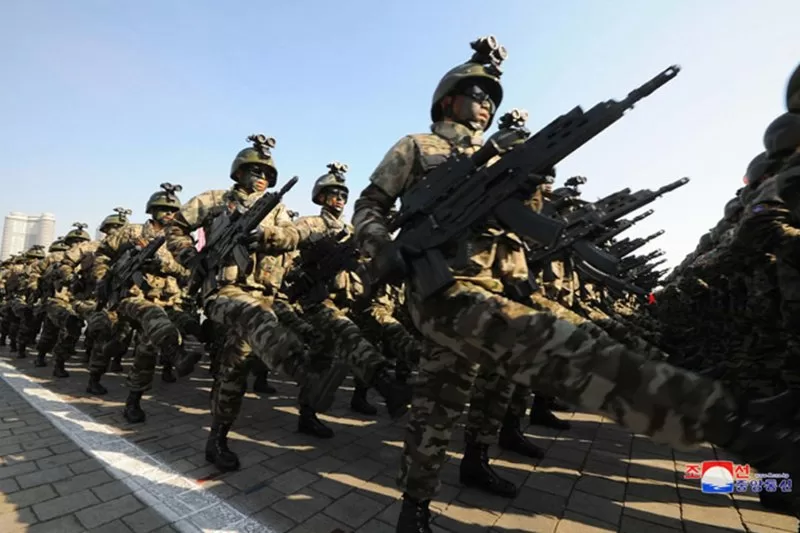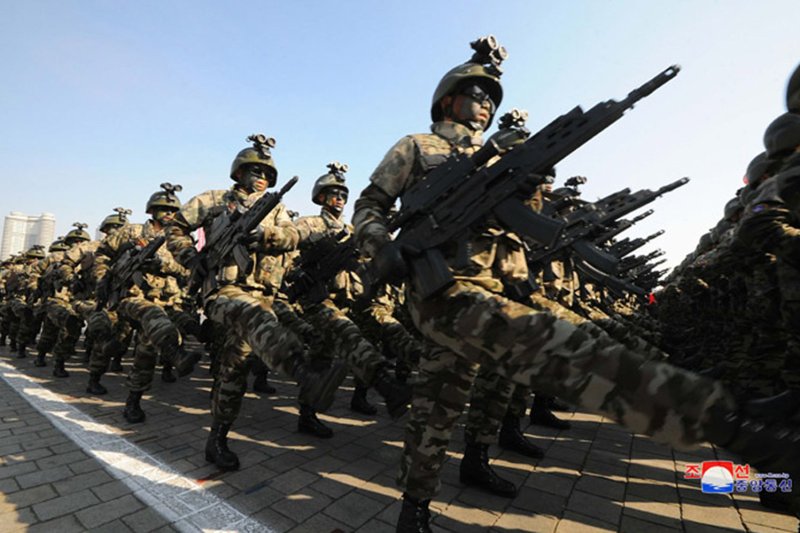North Korea has sent 3,000 troops to Russia so far this month, Washington and Seoul confirmed Thursday, amid growing concerns that they will be deployed on the battlefield in Ukraine. File Photo by KCNA/UPI |
License PhotoSEOUL, Oct. 24 (UPI) — North Korea has sent at least 3,000 troops to eastern Russia this month, both Washington and Seoul confirmed, with the White House saying that any soldiers deployed on the battlefield would be “fair game.”
U.S. National Security Council spokesman John Kirby told reporters Wednesday that Pyongyang moved the troops by ship from the Wonsan area to Vladivostok. The soldiers then moved on to multiple Russian sites where they are undergoing training.
“We do not yet know whether these soldiers will enter into combat alongside the Russian military, but this is certainly a highly concerning probability,” Kirby said at a press briefing.
“I can tell you one thing, though — if they do deploy to fight against Ukraine, they’re fair game. They’re fair targets,” Kirby said. “And the Ukrainian military will defend themselves against North Korean soldiers the same way they’re defending themselves against Russian soldiers.”
U.S. Defense Secretary Lloyd Austin confirmed the troop deployment earlier on Wednesday, calling it a “serious issue.”
South Korea’s spy agency, the National Intelligence Service, also said Thursday that around 3,000 soldiers have been dispatched by North Korea so far, with plans to send a total of 10,000 troops by December.
The NIS shared the information with lawmakers during a closed-door meeting of the parliamentary intelligence committee, news agency Yonhap reported.
The agency said last week that Pyongyang has provided more than 13,000 containers of artillery, missiles, anti-tank rockets and other deadly weapons to Russia on more than 70 occasions since August last year. Russia and North Korea have drawn closer since Moscow’s invasion of Ukraine in February 2022, with the two regimes signing a mutual defense pact in June.
The North has also ratcheted up tensions with Seoul, officially declaring it a “hostile state” and blowing up sections of roads and railways connected with the South last week.
Long known as the “hermit kingdom” for its isolationist stance, North Korea has begun expanding its foreign policy focus beyond the Korean Peninsula, according to analysts.
Sending troops to Russia highlights the regime’s “further strategic internationalization,” Sean King, senior vice president and East Asia expert at New York-based consulting firm Park Strategies, told UPI.
He added that the troops’ appearance on the battlefield would provide Seoul and Washington with potentially useful information.
“If North Korean troops do actually join in the fighting, it would be the North’s first major field combat since the Korean War,” King said. “It would be a sad development for innocents on the ground but would nonetheless provide the United States and South Korea with some insights into how North Korean forces might fare in a future conflict on the Korean Peninsula.”
Michael Butler, professor and chair of the political science department at Clark University in Worcester, Mass., questioned the short-term impact of the North Korean troops.
“While the significance of this from a geopolitical perspective shouldn’t be minimized, it is less clear that the infusion represents a major force multiplier, at least in the short run,” Butler said in an email. “The Korean People’s Army is massive in size but has not engaged in prolonged active combat since the 1950s, is entirely unfamiliar with the conflict environment in Ukraine and has long been plagued by supply and morale problems as well as inferior technology.”
North Korea denied sending troops on Monday, calling the claims “groundless stereotyped rumors” during a session on disarmament and international security at the United Nations.

